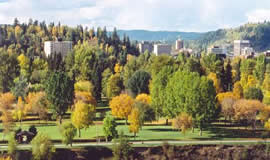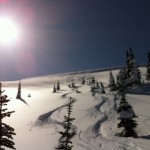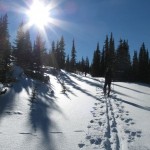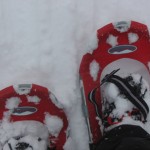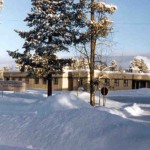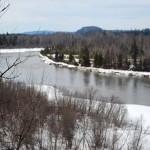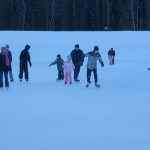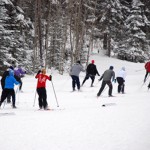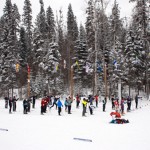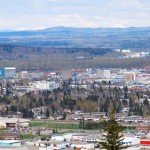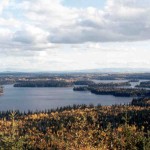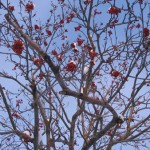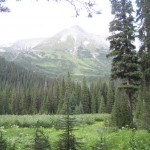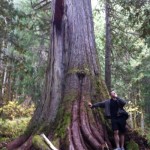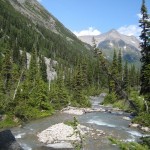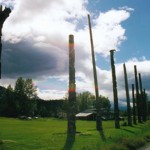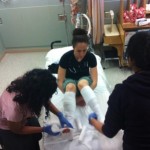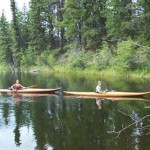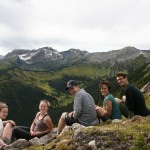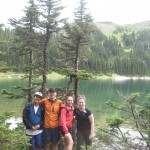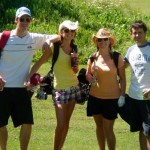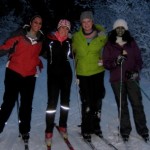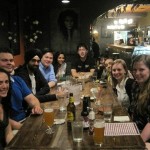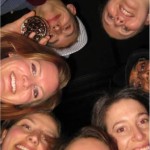Site Director Message
Welcome to the Prince George site!
Hi, welcome to the Prince George site. We are passionate about rural medicine with a northern context. If you are interested in the north, and in full service rural practice, please read on…
Our site is for you if:
- You are interested in full-service (urban or rural) Family Practice which includes office, hospital care, ER, and/or obstetrics.
- You are interested in rural medicine
- You are interested in rural locums
- You want to develop a solid foundation of acute care and ER Family Practice skills to apply for an R3 ER or GPA program (we have 12 weeks of ER and 4 weeks of ICU and 12 weeks of R2 elective time)
- You want a rigorous, diverse, and relevant clinical experience with lots of rural influence.
This site is probably not for you if:
- You want to work in an urban-based Family Practice office only setting
- You want to sub-specialize into a narrow scope of urban Family Practice
- You want to be a hospitalist
- You enjoy traffic and unaffordable housing
So what makes us unique?
Lots!
- We have a strong focus on northern and rural medicine. This involves heavy on call responsibility and lots of training in emergency and acute care medicine to have you ready to run that rural ER and hospital once you are done.
- We believe in resident autonomy. Whenever possible, we try and tailor the rotations and experiences to meet the needs of our residents. Autonomy = wellness!
- We offer optional rural experiences during some of our core R1 and R2 rotations. This will take advantage of smaller communities with more one-on-one time with specialists and Family Physicians in an enthusiastic atmosphere. This will be balanced with the volume and experience of the preceptors in Prince George, one of UBC’s most established residency sites.
- We are currently offering mentorship in rural committee work and policy development for those interested in involvement with provincial rural networks.
- We are incorporating frequent SIM lab sessions and ultrasound teaching (COVID restrictions depending) throughout the residency.
- We are also piloting the use of SIM sessions in our local site orientation. This is being driven by our current residents.
Who am I?
I am James Card, the site director for the Prince George and the Northern Rural Family Practice Programs. I am a UBC Northern Medical Program graduate and a graduate of the Prince George Family Practice Residency Program. I am currently a rural physician with my clinical practice in Valemount. I am passionate about full-service family practice and Rural medicine. It is my goal to create a program that excels in transitioning residents into competent and confident physicians for Northern and Rural British Columbia and Canada.
Who are we?
The Prince George site is one of the largest and most established of the UBC Family Practice residency sites. We have been training residents in Prince George since 1995.
Our hospital is unique for a community this size as most inpatients are still managed by their family physician. We do not have a hospitalist model here. The focus is on full-service Family Practice. Numerous community-based Family Physicians also work in emergency, including many of our graduates.
Historically we are known for extensive hands-on training from enthusiastic preceptors. There is also ample opportunity for teaching as Prince George is home to the Northern Medical Program.
I’ll be honest, our site has also been known for hard work. The call here is heavy, with diverse experiences. We are paying close attention to the volume and diversity of clinical experiences to ensure that our residents are appropriately prepared for independent practice. We produce strong residents (…and strong physicians)! I have heard this from numerous other rural Physicians and I have seen this personally as a rural preceptor, working with residents from all over the province.
The community:
There’s a frequent saying in Prince George, “I came here on a 2-year plan”. As a transplant from the Vancouver area myself, my 2-year plan is now going on 20. There are many reasons for this. This is truly a multicultural and diverse community of friendly people and ample opportunities.
- Medical community – most of the family physicians here are graduates of our program, there is a reason they stick around!
- Housing – affordable. Many residents buy. Enough said.
- Amenities – the community is just big enough for a Costco, two indoor swimming pools and multiple other recreational facilities
- Opportunity – many opportunities for spouses, children and family including a community college and a university.
- The outdoors – truly amazing. I could go on for hours, please ask. If you are into it, chances are you can do it here. This includes things you would not expect. Sailing? I had a boat here for six years. Diving? Yes, that too. Really, anything!
- Student loan forgiveness! – yes, you get that too as a resident here.
As is probably obvious by now, I believe Prince George and our program has much to offer the Resident who is interested in hands on hard work with the goal of becoming an excellent, independent, full service, fulfilled Family Physician who can practice competently anywhere.
If you are interested, please reach out to either myself or our residents.
Lead Residents – pg.fm.leads@gmail.com
R1 Reps – pg.fm.reps@gmail.com
I hope to chat with you soon!
Dr. James Card MD, CCFP
Lead Resident Message
You may be wondering what resident life will be like, and how to choose the right program. We think that choosing the right path depends as much on the people as the place.
Prince George is a welcoming, family-friendly and affordable community which will make the transition to residency that much more manageable. It is a small city that feels more like a small town. It is easy to get around and accomplish quite a lot in any given day–you could get off work, go to Costco, go snowshoeing or mountain biking, then head home. There is very little traffic, and there are seldom lines at the stores, making each commute and errand more manageable.
The medical community is well connected, and you get to know your staff as well as your colleagues very well throughout the residency. Although, with about 30 residents between the two years, Prince George is one of the larger UBC sites, the resident group here is quite tightly knit, often socializing during “call-free Fridays” which allow us to have a guaranteed night each week to spend time together and socialize with each other. Historically, we have had two retreats every year–one is with just the residents, and one is in Jasper with the hospital physicians. The location of our retreat changes from year to year; in recent years, the residents have greatly enjoyed skiing at Powder King Mountain Resort as their retreat.
We have a local resident resiliency committee that holds events for us, and arranges optional wellness check-ins. The warm and welcoming medical community is one of the highlights of resident life in Prince George. In fact, the community advocated for its own medical school, leading to the development of the Northern Medical Program, which highlights its passion for medical education. This represents itself when you see that your patients are appreciative to have you training in their community. There is a low learner to staff ratio so it allows the staff to get to know you well, allowing them to work with you on your strengths and weaknesses. You will get to know your family practice office well and will be able to develop a patient panel of your own as you will be with them throughout the two-year program. Lastly, if your interested in gaining a great deal of hands-on experience and formulating care plans for unique complex cases while not being a spectator to senior residents or fellows, then the program at Prince George would be a great fit for you.
In your free time, Prince George is considered the Capital of the North; offering picturesque wilderness and outdoor activities, including hiking, fishing, golfing and camping. Lakes and rivers abound with opportunities to kayak, canoe, fish or swim. There is an extensive network of trails for running and mountain biking. Winter activities include a range from cross country skiing, hockey, snowshoeing, downhill skiing, sledding and ice skating. The surrounding area affords easy access to the mountains for camping, backpacking or backcountry skiing. Prince George is home to the Cougars (a WHL hockey team), a symphony and an excellent semi-professional theater. There are two local breweries, both offering great venues to socialize, and many restaurants and chains to satisfy nearly every culinary craving. The local parks also accommodate for great impromptu spike ball sessions or rounds of frisbee golf.
We hope you will consider Prince George and come live the Northern BC experience!
Sincerely,
Dr. Graham Shaw & Dr. Jérôme Williams
Number of Residents: 6 CMG, 4 IMG, and 5 Northern Rural
Location: Prince George, BC
Community: 72,000
Hospital: The University Hospital of Northern British Columbia
Distance from Vancouver: 752 km
Curriculum Type: Block
R2 Elective Time: 12 Weeks
Phone: 250-565-2549
Contact: Director – Dr. James Card / Coordinator – Roghieh Soufinia
Lead Residents: Dr. Graham Shaw & Dr. Jerome Williams
Overview
Prince George is the largest Northern center for healthcare, inclusive of surrounding regions, servicing approximately 320,000 people. The University Hospital of Northern BC (UHNBC) is Northern BC’s largest state-of-the-art healthcare facility. This program incorporates the best practices of rural and remote medical education from around the world, providing outstanding exposure to direct care to patients. Through its collaboration with northern communities and Northern Health, the program utilizes various acute care facilities, long-term care facilities, community health centers and public health unit to ensure residents in Prince George are ready to take on any challenge their future in family practice hands them!
The PGY-1 year is structured in block rotations that includes a two-month rotation in the resident’s home family practice office. This is complemented by weekly office half days that allow for the development of a “resident practice” and a reminder of how each rotation is relevant to our future as family physicians. In the PGY-2 year, residents have 12 weeks of elective time to accommodate their own learning objectives. There is a 5-month family medicine block with integrated longitudinal exposure to palliative care and geriatrics. At the end of this rotation, there is the opportunity to do a “trial locum” under the supervision of attending family medicine staff. There is an 8-week emergency rotation with excellent teaching and the opportunity for the resident to “run the department” within their abilities and challenges residents that are up for it. Further critical care training is provided in a closed ICU where the PGY-2 works with the intensivist as the sole learner; there is ample opportunity bedside teaching to help prepare the family medicine resident and ample opportunity for procedures.
The distribution of the first and second year residents throughout the hospital makes virtually no learner conflict for clinical opportunities and procedures. The presence of clinical clerks both in their third-year rotations and visiting fourth-year electives also provides ample opportunity to act as a resident teacher and supervise clinical opportunities and procedures. There are senior residents visiting from Vancouver in internal medicine with CTU, and often in general surgery, peds or OB/GYN, whose presence typically benefits our learning as they act as mentors and offer valuable bedside clinical teaching. Our resident group is very close-knit and often can be found spending our leisure time together.
Within Northern health, there are over two dozen acute-care facilities, 14 long-term care facilities, public health units, and offices providing specialist services. In Prince George, there is a 219-bed tertiary care hospital, with an ICU and a level 2 NICU. We don’t have a hospitalist model and most of the family physicians within the community take an active role in caring for their patients admitted to hospital. There is a brand new BC Cancer Agency center which opened in January 2013. The Central Interior Native Health Center provides primary care to First Nations peoples, outreach services to patients with complex problems and those who live close to or on the street. Other agencies include the Child Development Center, the Suspected Child Abuse and Neglect Clinic and innumerable traveling specialty clinics. As residents, we have access to this wide range of facilities that provide abundant learning opportunities where the resident finds him or herself to be the sole learner. Northern Health is known for strong primary health care system. People experience seamless and coordinated service. The ‘Primary Care Home’ is the foundation for multidisciplinary health care and helps people navigate across services.
Since there are fewer learners, people who choose the Prince George Site should be relatively independent and motivated to seek out the many learning opportunities available. As the family physicians in the North have a broader scope of practice, the residents have greater opportunity to gain clinical experience, procedural skills, teaching, leadership, community involvement and patient advocacy. If you are willing to commit, engage in the program and take charge of your own residency training, you will complete the two years with a solid foundation and readiness for independent practice.
Program Highlights
The University Hospital of Northern British Columbia provides referral services to much of Northern BC and includes an emergency department, ICU, ambulatory care facilities and in-patient tower with all major specialties, except cardiothoracic surgery, neurosurgery and dermatology.
- Our Purpose is to foster diversity and clinical excellence to produce competent, professional, full service family physicians. Our Aspiration is to be a connected, vibrant community of adaptable family physicians and trainees, committed to an excellent learning environment, high quality primary care and community health and well-being.
- Family physicians are involved in the care of most hospitalized patients, do all the primary care obstetrics, and staff the emergency department.
- Teaching practices located either in a clinic on the grounds of the regional hospital with 17 Family Physicians, or 5 community practices with 9 Family Physicians, providing full service.
- Primary focus is training for work in communities outside major metropolitan areas with emphasis on procedural skills, primary care and management of acutely ill or injured patients, especially when access to a specialist’s care may be limited.
- Optional enhanced rural exposure in R2
- Call is busy, occurs approximately 1:4, with Call free Fridays – a common night off, creating the opportunity for all residents to get together socially.
- Emphasis on a balanced life with a goal being to afford residents the opportunity to hone personal qualities and skills in a work environment that is challenging but also collegial, supportive and fun
Sample Rotation
| Block 1 | Block 2 | Block 3 | Block 4 | Block 5 | Block 6 | Block 7 | Block 8 | Block 9 | Block 10 | Block 11 | Block 12 | Block 13 | |
| PGY1 |
ER |
Peds |
Peds/addictions |
FM |
FM |
IM |
IM |
Surg |
Native Health |
Ortho |
OB |
Ob/Gyn |
Psyc |
| PGY2 |
ER |
ER |
Rural |
Rural |
Elec |
FM |
FM |
FM |
Elec |
ICU |
FM |
FM |
Elec |
Current PGY1 Rural options:
Quesnel – General Surgery, ER
Williams Lake – General Surgery, ER, Ob/Gyn, Peds
…and we are working on more!
To get an understanding of what life could be like outside the learning hours, please refer to the Chiefs message above and please don’t hesitate to contact us with any further questions.
Here is a highlight of R1 rotations in Prince George (modified if you are choosing rural options) to get an idea of what your first year would look like:
General Surgery: a 4-week rotation. Potential of being the senior for 1-3 medical students, organizing rounds, organizing medical students, OR assisting or care of ward patients. Opportunity to attend scope clinics, lumps and bumps clinics and wound care clinics etc. Call 1 in 4 in hospital overnight.
ER: a 4-week rotation, paired with an ER physician for your shift. 4 hours in acute care, 4 hours in minor, or 8-hour shifts in acute care. Tons of hands-on experience including suturing, intubations, etc. and lots of independence.
Pediatrics: 3 weeks on CTU and 3 weeks on ambulatory. Call is 1:4, with only 1:7 during ambulatory. Potential of being senior for medical students, and lots of 1:1 time with staff. Opportunity to participate in the care of infants in a level III NICU.
Orthopedics: 4 weeks working 1:1 with orthopedic surgeons doing consults in the CAST clinic, assisting in trauma OR and routine replacements, as well as X-ray rounds. 1:4 call.
Obstetrics/Gynecology: 6 weeks of 1:2 call for obstetrics gaining hands-on experience doing deliveries and assessments with family physicians and in complicated cases, assisting in the C-sections with obstetricians. Many residents have 10 or more supervised solo deliveries. 2 weeks of Gynecology gaining skills in office 1:1 with the Gynecologists.
Psychiatry: 4 weeks of a combination of outpatient and inpatient medicine.
Internal Medicine: 7 weeks on CTU and 1 week of ambulatory with no call for ambulatory. 1:4 call for CTU. The most learning is done by residents on this rotation as you work closely in a large team led by an attending physician, clinical teaching associates, pharmacy, and senior internal medicine resident during the day. Opportunities to do skills like ultrasound and weekly ultrasound teaching, as well as thoracentesis/paracentesis. During the night, you gain independence in seeing consults, with backup from your staff.
Family Medicine: two 4-week blocks where you get to spend time in your family practice office.
Addictions: a unique two-week rotation working in adult and youth Detox, opioid agonist therapy clinics, as well as obtaining your prescription privileges for suboxone and methadone.
Central Interior Native Health: This unique rotation focuses on Indigenous health and is a mixture of inpatient and outpatient care. One weekend of call. Loved by all residents; it involves getting to know how to work in an interdisciplinary team and utilize community resources.
